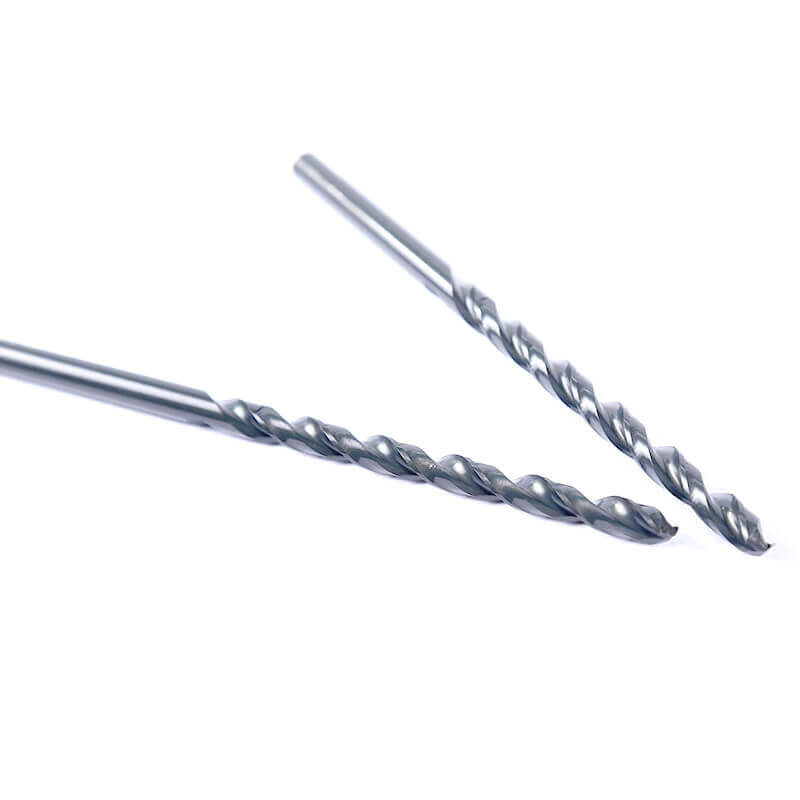

The shank size of the bit you choose (typically ¼-inch, ⅜-inch, or ½-inch) should match the chuck size of the drill. The shank is the non-drilling end of the bit that fits into the drill’s mandrel or “chuck.” It’s the end of a bit that you “plug in” to the drill. Because the coating reduces friction, it also increases drill speed. This coating reduces friction, which keeps the drill bit from heating up and eventually breaking. Metal drill bits are usually coated with titanium or black oxide.
Cobalt: This type of metal-drilling bit works well for drilling ferrous metals but isn’t as good at drilling nonferrous metals. Carbide: Metal-drilling bits made from carbide are suitable for drilling nonferrous metals but not ferrous metals. High-speed steel (HHS): This is an all-purpose drill bit that can be used to drill through both ferrous and nonferrous metals as well as carbon steel. As you’ll see below, a bit’s material can influence how effective it is at drilling through different kinds of metals. Most drill bits are made from high-speed steel, cobalt, or carbide. For example, some bits are capable of drilling through ferrous metals, such as cast iron, and others through nonferrous metals, such as copper and tin. Bits that drill through metal are further classified by the types of metal they puncture. While these small pieces of metal all look pretty similar, each type of drill bit specializes in making holes in certain materials-including wood, plastic, and metal-but won’t work as well on other materials. Most drill bits fit both standard corded and cordless drills. Photo: What to Consider When Choosing the Best Drill Bits for Metal  BEST FOR LIGHT-GAUGE STEEL: Bosch 21-Piece Black Oxide Metal Drill Bit Set. BEST FOR HARDENED STEEL: Drill Hulk 1/16-Inch Cobalt Steel Twist Drill Bits. BEST STEP-DRILLING BITS: TACKLIFE 5PCS Titanium Step Drill Bit Set. BEST BANG FOR THE BUCK: amoolo 1/8″ Titanium Drill Bits (10pcs). BEST OVERALL: Hymnorq 1/16 Inch to 1/4 Inch 13PC Drill Bits Set. The following drill bit sets rise above the competition and will help you make holes in myriad metals. If you are working on a project that requires you to drill through metal, read on to learn about the factors you should consider before you go shopping for the best drill bits for metal. Depending on the type of metal you’re drilling, some bits suit the task better than others. Labels on drill bits indicate the type of material for which they’re suited, so it’s easy enough to find ones that are designed to drill metal. Many drill bits can pierce through more than one type of material, but not all drill bits can drill through metal without heating up and snapping in half. Home improvement centers often dedicate an entire aisle to drill bits, which come in a plethora of types and sizes for drilling holes in a variety of materials.
BEST FOR LIGHT-GAUGE STEEL: Bosch 21-Piece Black Oxide Metal Drill Bit Set. BEST FOR HARDENED STEEL: Drill Hulk 1/16-Inch Cobalt Steel Twist Drill Bits. BEST STEP-DRILLING BITS: TACKLIFE 5PCS Titanium Step Drill Bit Set. BEST BANG FOR THE BUCK: amoolo 1/8″ Titanium Drill Bits (10pcs). BEST OVERALL: Hymnorq 1/16 Inch to 1/4 Inch 13PC Drill Bits Set. The following drill bit sets rise above the competition and will help you make holes in myriad metals. If you are working on a project that requires you to drill through metal, read on to learn about the factors you should consider before you go shopping for the best drill bits for metal. Depending on the type of metal you’re drilling, some bits suit the task better than others. Labels on drill bits indicate the type of material for which they’re suited, so it’s easy enough to find ones that are designed to drill metal. Many drill bits can pierce through more than one type of material, but not all drill bits can drill through metal without heating up and snapping in half. Home improvement centers often dedicate an entire aisle to drill bits, which come in a plethora of types and sizes for drilling holes in a variety of materials.






 0 kommentar(er)
0 kommentar(er)
